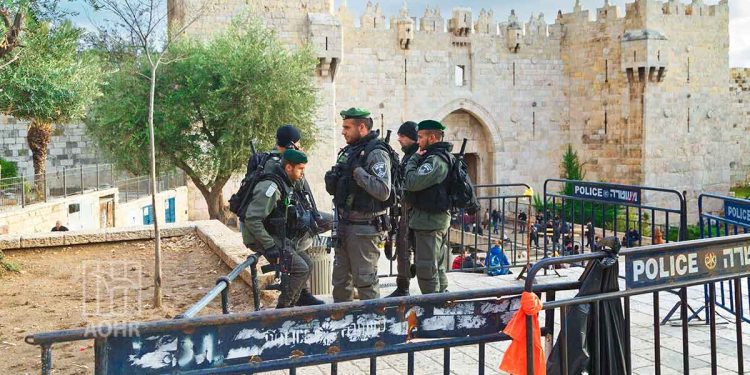Israeli authorities on Sunday prevented thousands of Palestinian Christians from the West Bank from reaching occupied Jerusalem to attend Palm Sunday celebrations at the Church of the Holy Sepulchre, marking the beginning of Holy Week for Christian communities.
Despite the participation of religious leaders, including the Greek Orthodox Patriarch of Jerusalem, Theophilos III, and the Latin Patriarch Cardinal Pierbattista Pizzaballa, the celebrations were notably subdued. Attendance was largely limited to a small number of worshippers from Jerusalem and Palestinian citizens of Israel, following sweeping Israeli restrictions on access to the city.
Israeli forces imposed a heavy security cordon around Jerusalem and tightened checks at military checkpoints separating the West Bank from the city, effectively preventing access to the Church of the Holy Sepulchre for the vast majority of Palestinian Christians.
According to Fr. Ibrahim Faltas, Vicar of the Custody of the Holy Land, only around 6,000 permits were granted out of thousands of applications, while the total number of Palestinian Christians in the West Bank is estimated at approximately 50,000.
Access to Jerusalem is contingent on obtaining Israeli-issued permits, which are subject to arbitrary “security checks.” Applicants are required to install a mobile application that has raised significant concerns regarding privacy and surveillance. Many applications are rejected without clear justification.
These restrictions constitute a violation of international legal standards. Article 18 of the Universal Declaration of Human Rights guarantees the right to freedom of thought, conscience, and religion, including the right to manifest one’s religion in worship, observance, and practice. Additionally, Article 12 of the International Covenant on Civil and Political Rights affirms the right to freedom of movement.
Preventing access to places of worship—particularly on days of religious significance—has been described by human rights monitors as a form of religious persecution. These practices also contravene the Geneva Conventions, which obligate occupying powers to ensure access to religious sites for the civilian population.
The denial of access to Jerusalem’s religious sites is part of broader Israeli policies aimed at restricting Palestinian presence in the city. These policies include restrictions on Muslim access to Al-Aqsa Mosque and Christian access to the Church of the Holy Sepulchre, reflecting efforts to alter the city’s demographic and cultural landscape.




























